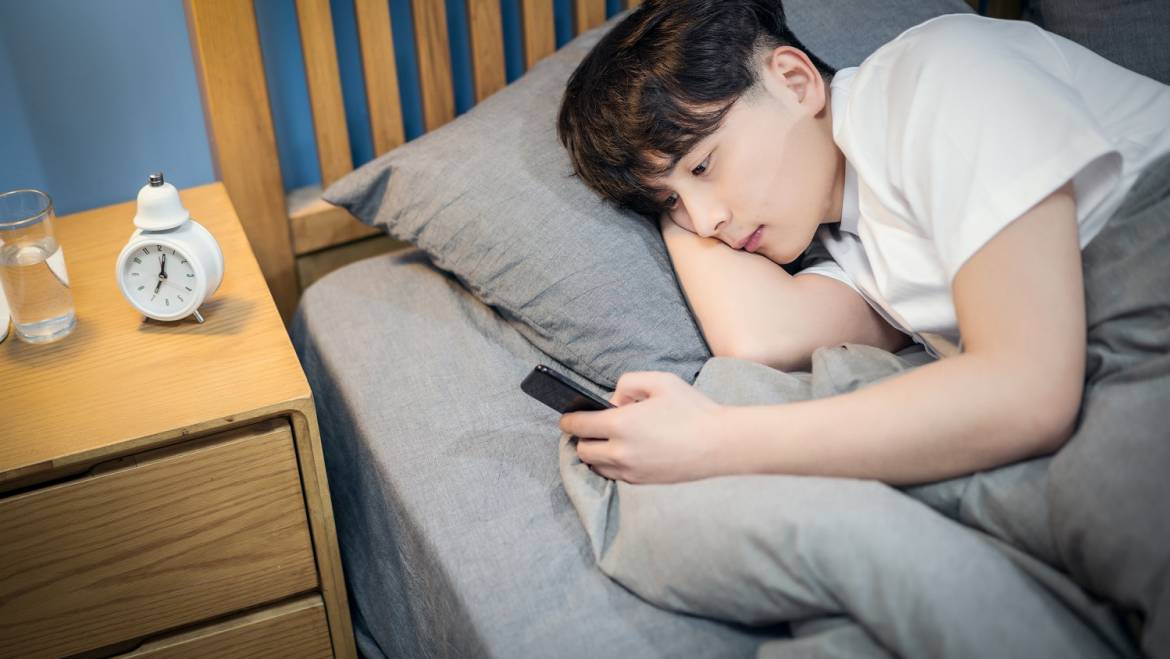A staggering rise of 72% * in cases of UK hospital admissions of under sixteens with sleep disorders from 2012 to 2019.
A 72% rise in under sixteens but only 2% rise in the increase of such disorders across all age groups across the general population!
What can be going on with the under sixteens?
Nobody knows for sure but several links have been identified.
Surprisingly, Childhood Obesity is one identified relevant link
Serious cases of sleep apnoea are the cause of most hospital admissions because it can cause breathing to be interrupted repeatedly during sleep. What happens is that the throat muscles relax intermittently and block the airways so breathing actually stops for a period of time which can clearly be very dangerous and even life threatening in some cases.
Adult Obesity has been long been known as a very common cause of obstructive sleep apnoea. Weight gain can cause fat to accumulate in the neck area and so obstructs breathing.
Sadly, childhood obesity has risen considerably in recent years in the UK and it is now thought that this is leading to sleep apnoea in children. Even in cases where it isn’t life threatening it can cause regular disturbance in sleep. This in turn causes impaired concentration, lack of energy and even depression in young people
Anxiety is another important link
Everybody knows that when you are busy worrying it is almost impossible to sleep no matter whether adult or child.
So treating anxiety itself is an obvious and essential first step and this will naturally improve both the amount and the quality of sleep.
Hypnotherapy is a brilliant source of help for anxiety
I specialise in working with children and the rise in the number of children I have to treat for anxiety has risen dramatically over the last twenty years!
Obviously if a child has severe anxiety it is best for them to have individual treatment but I always recommend as a first step simply to listen to one of my published MP3s that deals with anxiety.
I also have downloads that specifically deal with worries about sleeping. Very often simply listening regularly to one of these audios at bedtime can be the answer to all kinds of sleep difficulties.
https://www.firstwayforward.com/product/let-go-of-anxiety/ (for 10 – 16 yrs )
https://www.firstwayforward.com/product/relieve-anxiety/ (for teenagers /adults)
https://www.firstwayforward.com/product/peaceful-sleep/ (for teenagers /adults)
https://www.firstwayforward.com/product/rest-and-sleep/ (for seven yrs and older))
Sadly anxiety, even in very little kids, is on the rise
It’s such a shame but, even in very little kids, anxiety is increasing all the time. But once again very frequently one of the audios, specially written for the age group, will solve the problem.
They come in the form of relaxing, calming bedtime stories which offer lots of gentle solutions to their worries such as letting their worries fly away in balloons, giving them to the worry tree and whispering their worries to the magic flowers to name but a few.
https://www.firstwayforward.com/product/bedtime-for-sleepy-toys/ (for approx. 3 to 6 yrs)
https://www.firstwayforward.com/product/whisper-your-worries-away/ (for approx. 3 to 6 yrs)
https://www.firstwayforward.com/product/let-your-worries-fly-away/ (for 1pprox 5-9 yrs)
And of course there is a definite link to the dreaded issue of screen time!
An increased amount of screen time throughout the day has been linked to insomnia and even symptoms of depression in adolescents. This screen viewing can include social messaging, web surfing, watching TV, and gaming. In addition to recreational screen time school homework often includes internet research.
This is not to say that in and of itself all this screen time is bad … it’s a question of getting the balance right!
The Evening Blue Light Effect… what does this mean?
One of the effects of all electronic devices is the emission of an artificial blue light. This blue light can suppress the release of melatonin, a hormone which helps to induce sleep. This can cause our natural internal body clock to interfere with the signals for sleeping and waking up.
So it follows that the more time young people spend in front of their phone or other device, especially in the evening, the more disturbance there may be to the release of melatonin. This results in probable sleeping problems both in falling asleep and staying asleep. If this is regular it can result in lack of daytime concentration, lower levels of energy, lower tolerance and more grumpiness!
And, at its worst, sleep deprivation can lead to symptoms of teenage depression.
Lockdown of course hasn’t helped!
A lot of schoolwork has been done on-line and there’s no way around that.
Kids miss their friends and have been texting even more than before. I quite understand that but late evening ‘blue light’ can and does restrict sleep..
Limiting overall daily screen time can definitely improve sleep issues
Some parents institute a completely tech-free bedroom policy—no TV, computer, or smart phone allowed in the bedroom at any time … ever! Probably an ‘overkill’ approach and definitely easier said than done!
As all parents know forbidding phone use can cause major family disagreements. This doesn’t mean that they shouldn’t find ways to limit it at night however difficult it may be though.
I’m more than a bit attached to my phone too so I have a lot of sympathy with them. Give a good example yourself … Be prepared to limit your own use late evening and you just might (I stress might) get a better response!
However you go about it, definitely consider setting a digital curfew one to two hours before bedtime (the earlier, the better). All ideas for the best way to achieve this are welcomed!!
If all else fails, you could always resort to bribery!
* Hospital admissions for all age groups with sleep disorders as a primary diagnosis rose from 29,511 in 2012 – 2013 to 30,098 in the years 2018-2019. Statistically this rise of 519 cases is a fairly small rise.
Compare this to the rise for under sixteens from 6,549 cases in 2012-213 to 11,313 cases in 2018-2019! A rise of 4,764 cases!



